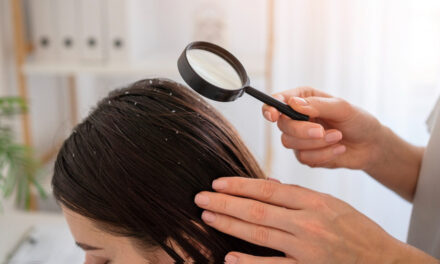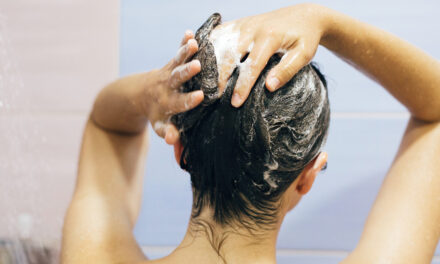
Our hectic lifestyles have influenced different facets of our lives, and hair is no exception. With stressful lives, changing dietary habits with most of us turning away from healthy food and lack of time for hair care, hair fall, reduced hair growth, and hair thinning, among others, are widespread issues.
Want to know how to increase hair growth and promote healthier hair and scalp? There are many effective natural remedies for hair growth. Let’s take a look at a few home remedies that encourage hair growth and are also easy to prepare or adapt.
Home Remedies for Hair Growth
1. Onion Juice

Onion juice is a very effective and affordable way to promote hair growth and combat alopecia areata. Some find the smell of onion disconcerting, but if you look past it, the results are well worth it.
How to use it?
Ideally, use small shallots, though large onions work well too. Juice a handful of onions and extract the juice by sieving the paste.
Apply the onion juice on your scalp as close to the roots as possible and massage gently. Let it sit for 25 minutes to an hour.
Wash off with a mild shampoo, condition, and rinse off. Let your hair air dry and style as usual.
Notes
Onion juice can be used alone or in combination with other ingredients, including aloe vera, herbal juices like false daisy, etc. to reverse hair loss and promote hair growth and hair regrowth.
Onion is cooling, so make sure you’re good to go. Those with sinus-related issues might not be able to use this ingredient.
2. Hibiscus

Hibiscus flower promotes hair growth and has been used to stimulate hair growth for ages. Any and all hibiscus flowers help, but the best variety is called the Chinese red hibiscus or five-petal hibiscus.
How to use it?
There are different ways to use this herb. The most common way is infusing hair oil with this herb – both flowers and leaves can be used.
However, you can also grind this as a paste, mix it with other hair-beneficial herbs or hair wash powder, and use it to wash your hair.
Notes
It’s important to note that this herb is very cooling, so not many can use this herb paste as a mask.
Make sure to check if it suits you to avoid any adverse reactions like flaring up of sinus-related issues.
3. Egg
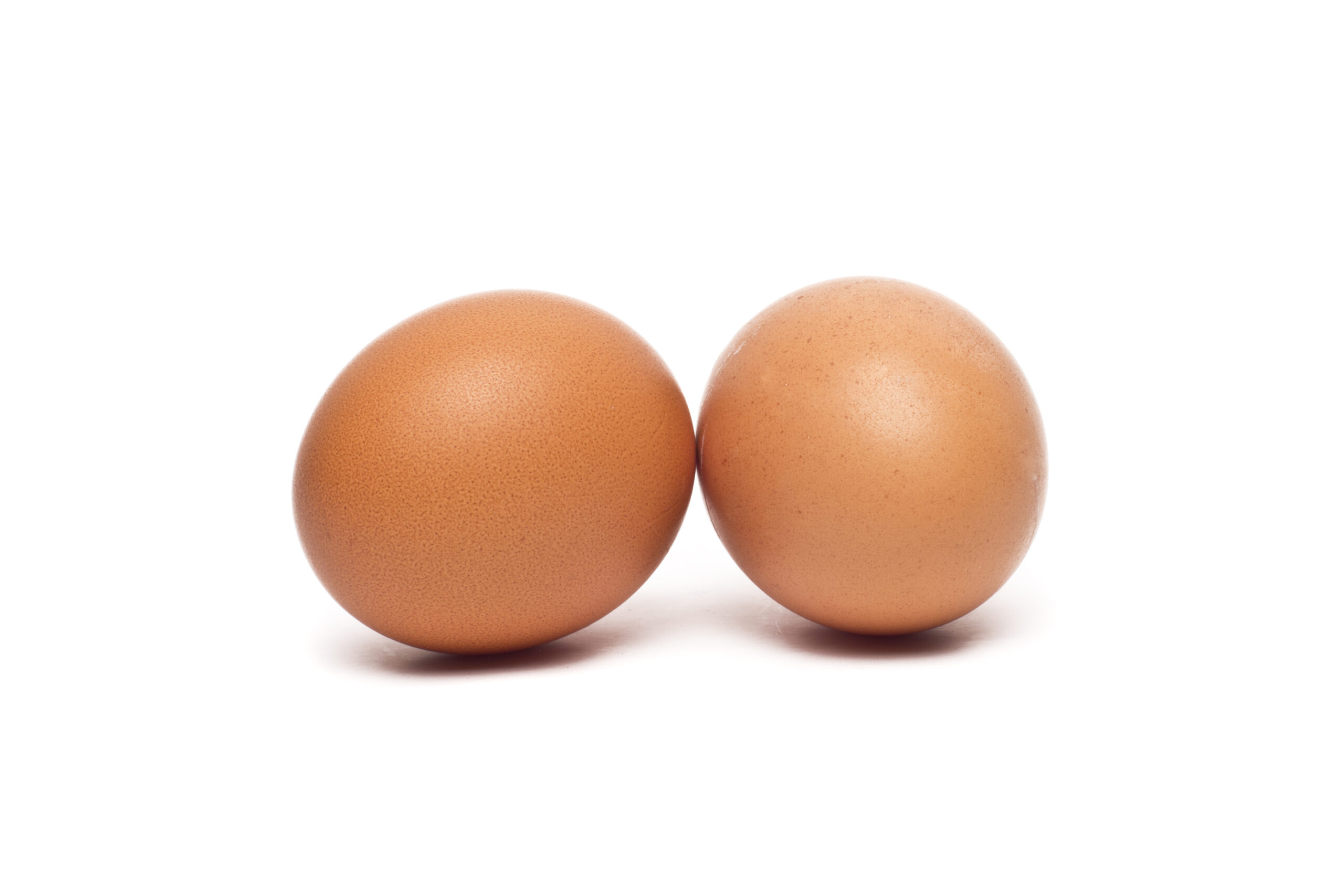
One of the most effective and nutrition-packed home remedies for hair growth is using eggs. As long as the smell and texture aren’t off-putting, using eggs at least twice a month can promote hair growth, curb thinning of hair, reduce hair damage and hair breakage, strengthen hair roots, and more.
The fatty acids in eggs nourish your hair and give increased hair thickness, while the nutrients in eggs, like selenium, zinc, iodine, and iron, boost hair growth. The vitamins in eggs give you lustrous hair and improve hair quality.
How to use it?
There are different ways to use eggs. You can prepare a simple mask using olive oil and egg by whisking both ingredients together and applying it to your hair and scalp as a mask.
Don’t use more than two eggs at a time. Take olive oil – same quantity as the egg and whisk to combine. Apply this mixture to your scalp and massage gently. Don’t forget to apply any remaining mixture on your hair – especially the tips.
Wait for half an hour before washing off.
Notes
You can use argan oil, jojoba oil, coconut oil, or even sweet almond oil instead of olive oil.
You can also use rosemary oil or other essential oils for this mask. If you don’t have rosemary essential oil, you can infuse coconut oil with rosemary leaves and use that in this recipe.
4. Scalp Massage
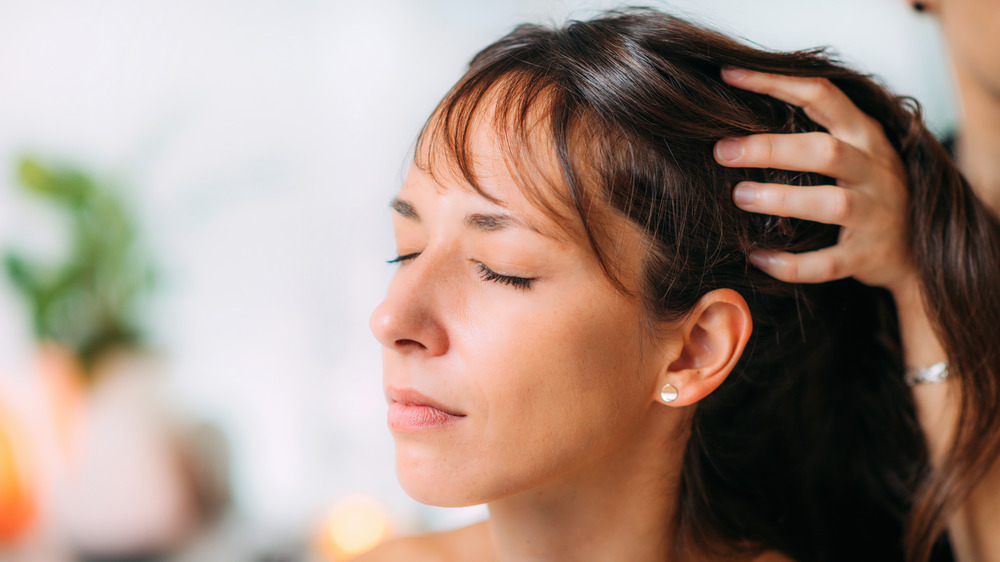
Massaging your scalp is not just for relaxation. It can promote hair growth by directly working in the dermal papilla cells found in hair follicles. These cells have a key role in the growth, cycling, and formation of hair.
Standardized scalp massage results in the transmission of mechanical stress to the dermal papilla cells within subcutaneous tissue. It is proven to promote healthier and thicker hair in individuals. A reason scalp massage is a mainstay in hair growth tips.
Hair growth potential increases by folds when hair treatments are combined with massage as they stimulate blood circulation to the scalp. Your hair care routine should include massage at least once or twice a week for best results.
A reason any topical treatment for strengthening hair roots or promoting hair growth includes massage in one form or another is the positive changes in standardized scalp massage results. The fatty acids in oils used for massage also make hair shinier and stronger and improve manageability.
You don’t have to for professional sessions. Just incorporating massage in your routine while applying hair masks, applying oil, or using new topical treatments for hair growth or care can render good results.
5. Coconut
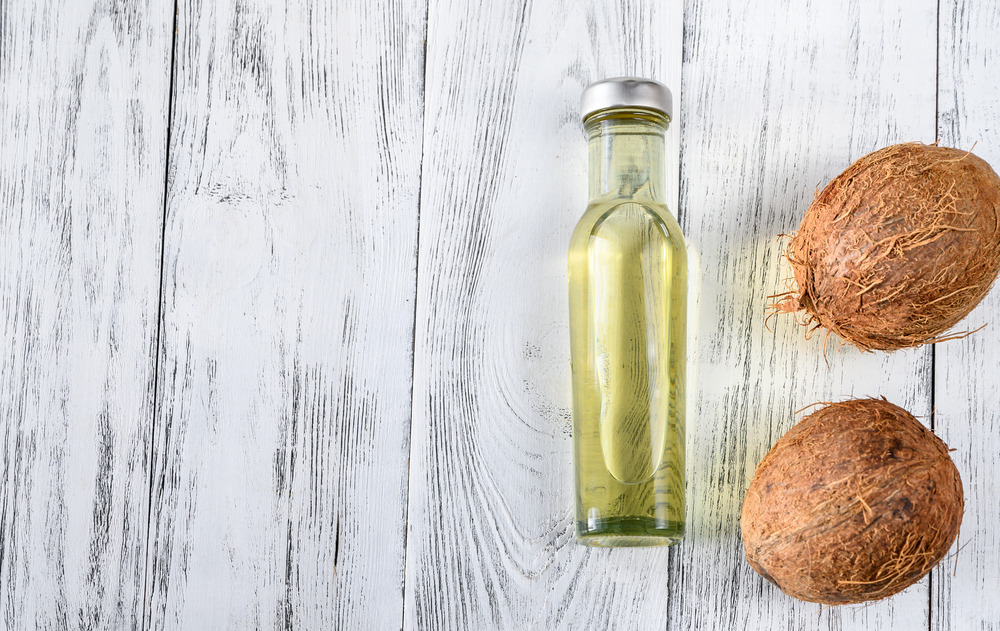
Coconut oil has been widely used in Asian countries for hair and scalp care for centuries. Studies show that coconut oil penetrates the hair shaft and reduces hair damage, nurtures damaged hair, makes hair strands healthier, and improves hair follicle health.
Not just coconut oil, coconut milk is used for improved hair growth, to nurture thinning hair, to make hair healthy, and to encourage new hair growth. Rich in fatty acids and vitamins, it’s a great food for hair.
How to use it?
You can use coconut oil as a leave-in treatment pre or post-shower.
You can apply coconut milk as a hair mask and leave it for at least 30 minutes before washing off.
Applying coconut oil on your scalp can help remove excess oil while also moisturizing dry hair and curbing greasy hair effectively. You can combine it with apple cider vinegar rinse for better results.
6. Aloe Vera
Aloe vera is a humble herb that offers many benefits for hair and scalp care. It has been used for promoting hair growth, to unclog blocked hair follicles, to reduce hair loss, etc.
How to use it?
You can apply pure aloe vera gel directly on your hair and scalp and let it sit for about 25 minutes before washing off.
You can infuse your hair oil with aloe vera and use it as a leave-in treatment.
Aloe vera can be combined with other hair care ingredients like coconut oil, coconut milk, rosemary oil, apple cider vinegar, etc.
7. Green Tea

Rich in antioxidants and polyphenols, green tea is one of the most effective home remedies for hair growth. Bioactive compounds in green tea have a proliferative action on the dermal papilla cells and reduce hair loss.
Studies show that green tea can promote hair regrowth, a reason it’s one of the most popular remedies for hair growth. The nutrients in green tea also promote healthy hair.
How to use it?
You can consume green tea regularly to enjoy the benefits. However, if you are on blood thinning or medicines or allergic to caffeine, don’t consume green tea.
You can also use green tea directly on the scalp or add a few drops of concentrated green tea concoction to your hair masks.
8. Rosemary Oil

No list of home remedies for hair growth can be complete, including Rosemary oil. It has been used to promote hair growth, reduce hair fall, treat male and female pattern baldness, etc.
How to use it?
A few drops of rosemary essential oil can be added to hair oils and used as a leave-in treatment.
It can be included in any hair mask or topical hair treatment that promotes hair growth and curbs hair fall.
It works directly on the hair follicles when you massage this oil to your scalp during pre-shower or post-shower. As a pre-shower treatment, it can be left at least for 30 minutes or used as a leave-in applied after air drying hair.
9. Coffee

Not many associate coffee with hair growth, but studies show caffeine, a major component in coffee, can promote hair growth and elongation of the hair shaft. This reduces hair loss and curbs thinning of hair, resulting in thick hair.
How to use it?
If you don’t already, have a cup of coffee every day. Don’t consume caffeine in excess, as it can harm your health in the long run.
You can use coffee grounds as a scrub to get healthier hair strands. Not only does it help clear the scalp, but a healthy scalp results in healthier hair.
Damaged hair can get a facelift with a coffee mask and look lustrous and shiny. You can use coffee grounds or brewed coffee, individually or with other home remedies for hair growth.
10. Fenugreek
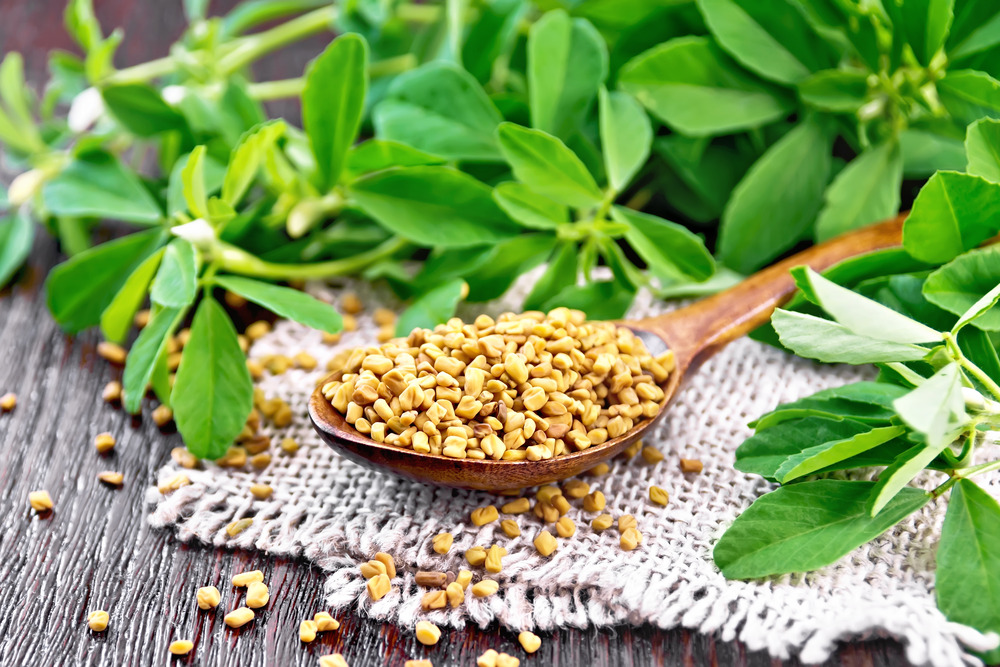
Fenugreek contains bioactive compounds that work on hair follicles to promote healthy hair. A study shows fenugreek improves hair growth, curbs hair loss, improves scalp and hair health, etc.
How to use it?
Soak fenugreek seeds overnight, grind them to a smooth paste the next morning, and apply it as a mask. Wash off after 25 minutes with a mild shampoo and air dry.
Fenugreek can be combined with other natural remedies.
You can infuse your hair oil with fenugreek seeds for incorporating this herb into your hair care routine.
When using fenugreek regularly as a mask, it can improve hair density. You can combine it with aloe vera or even onion juice to promote new hair growth.
Notes
Don’t let fenugreek sit on your scalp for longer, especially if you are prone to sinus or cold-related issues.
There is a possibility you’re allergic to fenugreek if you’re allergic to certain legumes, especially if they come under febaceae family.
What is Hair Loss?
Every day, we lose a few hair strands, which is normal. However, when hair fall is more than normal, it causes hair thinning or partial to full baldness, causing hair loss.
When hair loss is left unchecked, it can result in balding, thinning of hair, etc. Alopecia areata could also be a reason for hair loss.
It’s normal to lose 50 – 100 strands of hair a day, and it’s not a cause for concern. But if hair falls out in bunches every time you comb or run your fingers through your hair or more than the normal limit, then it’s time to look into it.
Male pattern baldness
Also called androgenetic alopecia, male pattern baldness is the most common hair loss cause in men. This sets in during the later years and is often triggered by changes in hormone levels, causing loss of hair, especially in the front, crown, and top of the head. Alopecia affects or alters the hair growth cycle, disrupting hair growth.
Female pattern baldness
Female pattern baldness or alopecia is the loss of hair caused by genetics, hormonal changes, and aging. Alopecia is a common cause of hair loss and female pattern baldness in women, but unlike in men, it rarely causes complete loss of hair or total baldness.
Thinning of hair typically happens around the top and crown of the head but starts with the widening of the hair part. While hair thinning also occurs, the front hairline isn’t majorly affected except for recession in the hairline.
Symptoms of Hair Loss
There are many symptoms, and not everyone has them all. It’s important to note the symptoms also vary with individuals.
- Gradual and progressive thinning of hair results in circular or bald patches.
- Receding hairline that keeps progressing and widening part (especially common in women)
- Exposed scalp, especially around the crown
- Sudden loss of hair in patches
- Excessive shedding of hair
- Some individuals experience intensive burning or itching just before the sudden loss of hair.
Factors That Affect Hair Growth
There are many factors that can cause reduced hair growth. The main factors include:
Nutrition – deficiencies, lack of proper diet or nutrition, weakness, etc.
- Certain prescription medicines
- Autoimmune disorders
- Illness, surgery, certain treatments like chemotherapy, etc.
- Genetics
- Hormonal Changes
- Pollution
- Overuse of chemicals and styling products that damage hair
- Lifestyle or habits – smoking, etc.
Blood circulation plays a key role in hair growth as oxygen and other nutrients are supplied to our hair and scalp through blood. That’s one reason why stimulating blood flow to the scalp helps stimulate hair growth in cases where it’s affected.
FAQs
Can your hair grow back after thinning?
Thinning of hair could be due to different reasons that cause hair loss and thinning. Depending on the cause, yes, hair can grow back after thinning when corrective measures are taken where needed.
How can I get my dead hair follicles to grow back?
In most cases, dead hair follicles cannot be revived without intervention. It’s important to prevent hair follicle damage rather than taking measures to reverse after damage is done.
Depending on the individual’s age, causative factors, and other factors, hair follicles may revive or renew after being dormant, but resurrecting is difficult. Stimulating hair follicles can help soothe and stimulate dormant follicles and improve hair growth.
Does bleached hair affect hair growth?
Bleaching often can damage hair, causing breakage, and may be counterproductive when you’re trying to grow out your hair. It can reduce hair growth rate in the longer run when done frequently.
As always, feel free to reach out for any questions or feedback. Do try out these home remedies for hair growth and let us know how you like them. Don’t have time for DIY? No worries, we’ve got you covered with Vitamins Revive products. Don’t forget to check out their range at the Vitamin Revive Store to know more.



